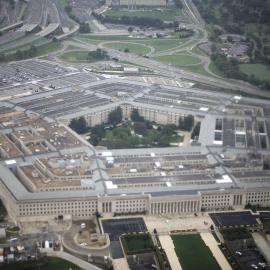To the Editor:
Martin Feldstein argues that the Pentagon is "underfunded" ("The Underfunded Pentagon," March/April 2007). He writes convincingly that the United States can afford to spend more on its military, but his central premise -- "Handling the new threats facing the United States will require a significant rise in defense spending" -- is flawed. Our armed forces need a better strategy, not more money to counter the terrorist threat and small regional powers with weapons of mass destruction intent on harming our country.
Feldstein offers Reagan-era levels of defense spending as a way to frame the discussion over how much more money the Pentagon "needs." He applauds the Reagan administration for rapidly increasing defense spending to six percent of GDP, thereby helping to "bring about the collapse of the Soviet Union." But this analogy is not relevant because we cannot outspend terrorists until they implode.
Feldstein cites the army's Future Combat Systems program as an example of the new weapons needed for new threats. But although the FCS is at the heart of the army's effort to become lighter and more mobile, it is not necessarily designed to help in the fight against terrorism or in close-quarter urban engagements. Even if all of the army's units were somehow magically outfitted with the system today, the situation in Iraq would not change. The FCS would be only marginally helpful. Because the FCS is more valuable against peer competitors, and given the program's technical difficulties, the 2030 acquisition timeline seems appropriate.
Nor would many of Feldstein's spending recommendations necessarily serve to increase the Defense Department's budget. For example, the Central Intelligence Agency may be the best candidate to bolster our intelligence capabilities, and the Department of State would likely be the agency to channel aid to foreign partners. Funding electronic bioscanners to check for foreigners who have stayed beyond their visas' expiration dates and fitting U.S. airliners with technology that would enable them to elude surface-to-air shoulder-fired missiles are beyond the scope of the Pentagon's mandate. The United States needs to address security concerns within the country, but the most appropriate recipient of any increased funding may be the Department of Homeland Security.
Major Lawrence Spinetta
